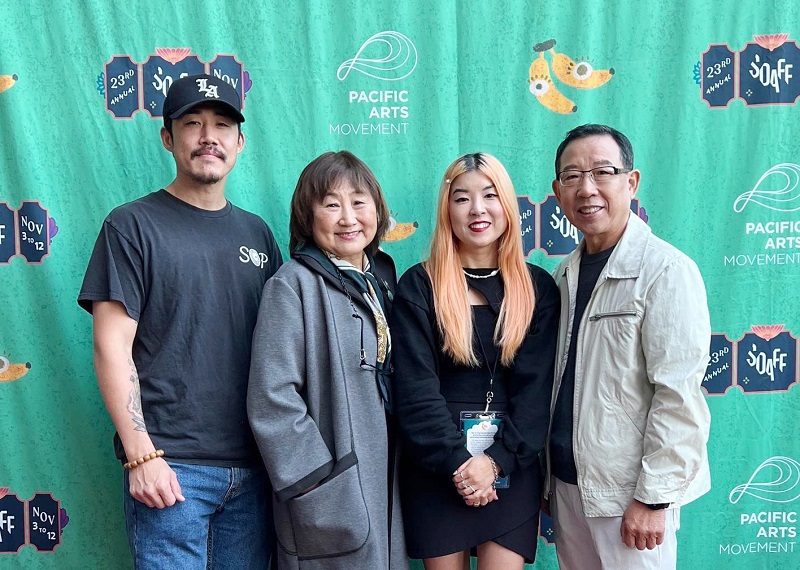
The short film was selected for prestigious film festivals such as Tribeca Festival (2022 official selection), Toronto International Film Festival (next wave 2023), BFI London Film Festival (official selection 2022), and Busan International Film Festival (official selection).
PBS aired the documentary film “Liquor Store Dreams” on July 10. In a HuffPost article published on the same day, director So Yun Um was highlighted for her efforts to address anti-Black sentiment deeply rooted in the Korean community. The article also noted that the Black community may face challenges in understanding the underlying anti-Black sentiment portrayed in the film.
“Liquor Store Dreams” is a documentary that explores the lives and daily struggles of first- and second-generation Korean immigrants. Um, who wrote, directed, and produced the film, tells the story of herself, her father Hae Sup Um, who has operated a liquor store in Inglewood for over 30 years, as well as her friend Danny Park and his mother, who run a liquor store in Skid Row, Los Angeles.
The documentary includes candid interviews with first-generation Korean-American immigrants who were deeply affected by the trauma of the 1992 LA Riots. Um’s father and other Korean immigrants worked long hours in predominantly Black neighborhoods, dealing with a significant number of low-income customers and frequently facing arguments and conflicts arising from unreasonable demands.
The documentary sheds light on the historical fact that thousands of Korean-American small business owners became victims of looting and arson during the 1992 riots in Koreatown, Los Angeles. This contributed to the perpetuation of anti-Black sentiment within the Korean-American community, primarily among the first generation of immigrants. On the other hand, the second generation, growing up during that time, often struggles to comprehend the pain experienced by their parents’ generation and are disappointed by their expressions of racism.
Media responses have highlighted the thought-provoking nature of the confrontations between Black customers and Korean-American business owners depicted in the documentary. The pain stemming from the 1992 riots, where the first generation of Korean immigrants lamented the destruction of their lives, and the efforts of the second generation to challenge their parents’ anti-Black sentiments, provide insight for the Black community and American society at large.
Director Um is portrayed in the documentary as she grapples with her father over his anti-Black sentiment. During the height of the Black Lives Matter protests following the death of George Floyd in Minneapolis, Minnesota, in May 2020, her father focused on closing his liquor store in Inglewood, while she endeavored to make him understand the anger felt by the Black community over Floyd’s death and police abuse.
Um’s documentary fearlessly captures the reality of these experiences. She aimed to capture the thoughts and traumas of her parents’ generation as they truly were, challenging the mainstream’s narrow view of the Korean-American community.
Reflecting on her work in her father’s store, Um expressed, “You might think that the older generation of Koreans are racist (toward Black people), but that’s not necessarily the case.” She shared that even one Korean-American woman described anti-Black sentiment as a poison harming the Asian-American community.
Through her documentary, Um aimed to delve into the struggles of Korean immigrants, their American dreams, and the dynamics of confrontation and reconciliation among minority communities. Notably, she emphasized that both anti-Asian and anti-Black sentiment are, in the grand scheme of things, side effects of a white supremacist reality. To address tensions and conflicts between minority groups, director Um emphasized the need to recognize and act upon the absurdity of the social system perpetuating them.
BY HYOUNGJAE KIM [kim.ian@koreadaily.com]




